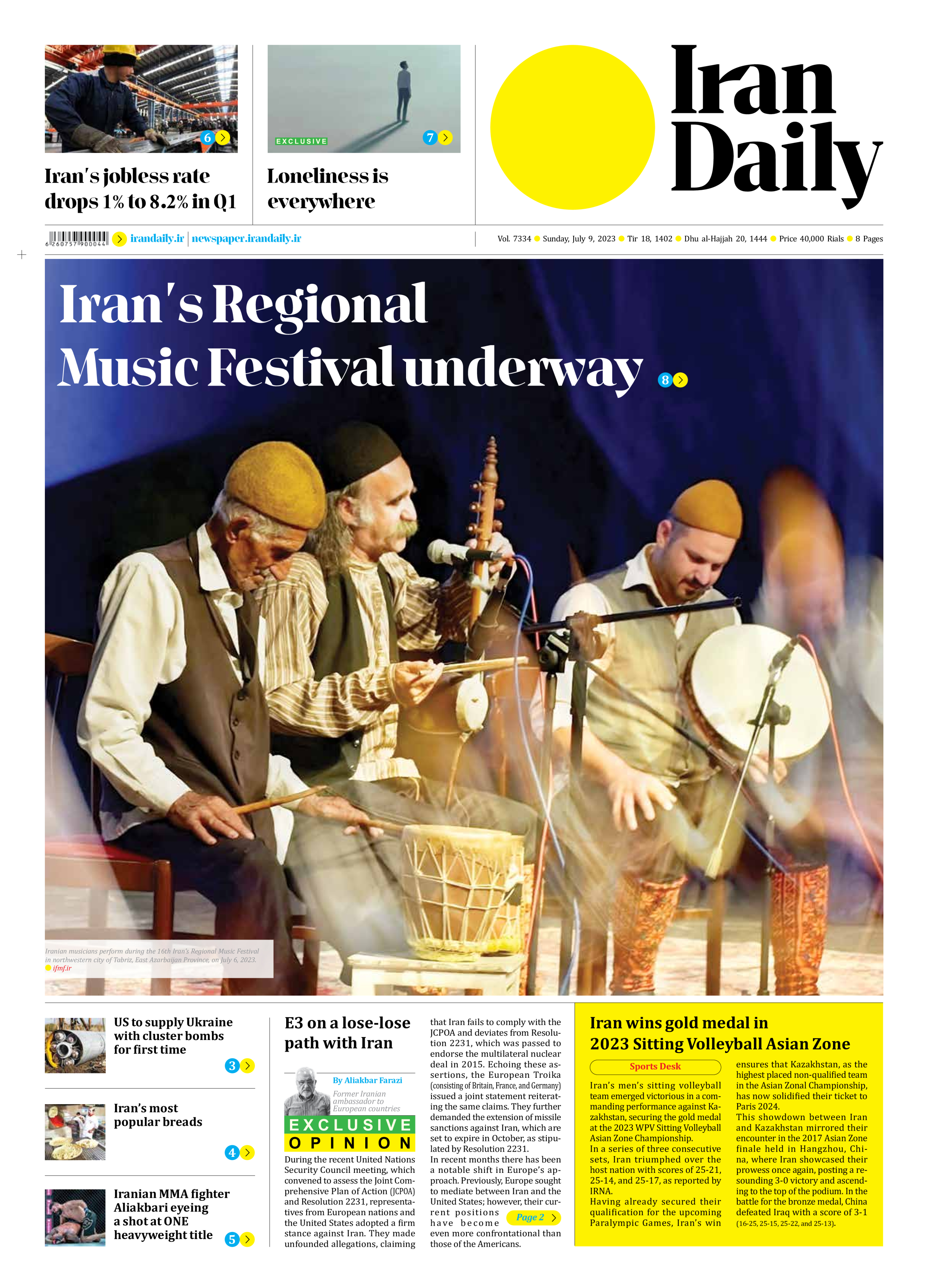
E3 on a lose-lose path with Iran
By Aliakbar Farazi
Former Iranian ambassador to European countries
During the recent United Nations Security Council meeting, which convened to assess the Joint Comprehensive Plan of Action (JCPOA) and Resolution 2231, representatives from European nations and the United States adopted a firm stance against Iran. They made unfounded allegations, claiming that Iran fails to comply with the JCPOA and deviates from Resolution 2231, which was passed to endorse the multilateral nuclear deal in 2015. Echoing these assertions, the European Troika (consisting of Britain, France, and Germany) issued a joint statement reiterating the same claims. They further demanded the extension of missile sanctions against Iran, which are set to expire in October, as stipulated by Resolution 2231.
In recent months there has been a notable shift in Europe’s approach. Previously, Europe sought to mediate between Iran and the United States; however, their current positions have become even more confrontational than those of the Americans.
It appears that the Europeans have seized upon the allegation of military cooperation between Iran and Russia in the Ukraine war as a pretext to impede Iran’s rights under the JCPOA and Resolution 2213. Simultaneously, they accuse Iran of violating Resolution 2231 and failing to fulfill its commitments under the JCPOA, while the primary factor contributing to the current state is the US unilateral withdrawal from the accord in 2018.
Contrary to expectations, the Europeans either could not or chose not to honor their obligations under the JCPOA, leaving Iran without any substantial benefits from the nuclear agreement. Consequently, after one year, Tehran began reducing its commitments and announced that it would resume its JCPOA obligations once the US rejoins the agreement, or when the other parties uphold their commitments. Hence, the claim that Iran has completely withdrawn from the JCPOA is inconsistent with the actual circumstances.
It appears that the Europeans are primarily using concerns over military cooperation between Tehran and Moscow in relation to Ukraine as their main justification. However, it should be noted that Iran and Russia have been engaging in normal arms exchanges for some time now. Tehran has denied allegations of selling drones to Russia for use in Ukraine and has repeatedly stated that if Ukraine or the European nations possess evidence, Iran is willing to study it. Tehran consistently emphasizes its neutral stance in the Ukraine conflict and advocates for a resolution through dialogue.
Based on these circumstances, the Europeans aim to deprive Iran of the removal of arms and missile restrictions outlined in Resolution 2231, using the pretext of military cooperation between Tehran and Russia. Such unproductive efforts will undoubtedly strain relations between Iran and Europe, which is not in the best interest of any party involved. Europe’s haste to implement this demand, which falls outside the scope of the JCPOA, will lead to a lose-lose situation for both Iran and Europe, despite the potential for mutually beneficial collaboration.
Iran’s diplomatic apparatus should take note that until October, when the Europeans plan to take steps to extend Iran’s missile sanctions, more substantial discussions should be pursued with the European parties, directly within the European countries themselves.
During the Security Council meeting, the United Nations Secretary-General Antonio Guterres and Amir-Saeid Iravani, Iran’s ambassador to the UN, emphasized that the JCPOA remains the most effective means to address the differences between Iran and the West. This is the correct approach, and the parties involved should not miss this opportunity. As time goes by, the risk of interference from opponents of the JCPOA and the further widening of the gap between Iran and the JCPOA parties becomes increasingly likely.







